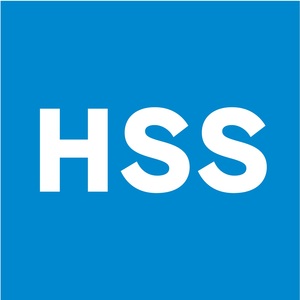NEW YORK, Nov. 6, 2021 /PRNewswire/ -- A new study by researchers at Hospital for Special Surgery (HSS) in New York City demonstrates over half of patients with rheumatic diseases who contracted COVID-19 during the pandemic and completed a COVID-19 survey, experienced so-called "long-haul" COVID, or prolonged symptoms of the infection, including loss of taste or smell, muscle aches and difficulty concentrating, for one month or longer.
Findings identified long-haul COVID was particularly high for smokers, patients with comorbidities such as asthma or lung disease, cancer, chronic kidney disease, diabetes, congestive heart failure or myocardial infarction, and those taking corticosteroids.
"Knowing the impact of this problem is critical," said Medha Barbhaiya, MD, MPH, a rheumatologist at HSS who led the study. "For rheumatology patients, long-haul COVID may be particularly challenging as these patients already have significant chronic health issues and warrants further investigation."
Dr. Barbhaiya and her colleagues presented their study, "Risk Factors for 'Long Haul' COVID-19 in Rheumatology Outpatients in New York City," at the American College of Rheumatology (ACR) annual meeting.
For the study, Dr. Barbhaiya's group emailed surveys to 7,505 men and women aged 18 years and older who had been treated at HSS for rheumatologic complaints between 2018 and 2020. Participants were asked if they had received a positive test for COVID-19 or if they had been told by a healthcare provider that they had contracted the infection.
The researchers defined long-haul COVID-19 infections as those with symptoms lasting one month or longer, whereas limited-duration cases were considered those with symptoms lasting less than one month.
Among the 2,572 individuals who completed the survey, nearly 56% of patients who reported having contracted COVID-19 said their symptoms lasted at least one month. Only two patients in the study had a previous diagnosis of fibromyalgia — a condition marked by fatigue, muscle aches and other symptoms that have been associated with long-haul COVID — suggesting that overlap between the two disorders is minimal.
"Our findings do not suggest that symptoms of fibromyalgia are being misinterpreted as long haul COVID in patients with rheumatic diseases, which is something that has been raised as a possibility," said Lisa A. Mandl, MD, MPH, a rheumatologist at HSS and senior author of the new study.
HSS researchers plan to use the data as part of a longitudinal analysis of rheumatology patients with long-haul COVID to determine if the lingering symptoms of the infection interfere with their rheumatologic conditions. Ongoing surveillance of these patients will provide important insight on the long-term impact of COVID-19 in patients with rheumatic disease.
About HSS
HSS is the world's leading academic medical center focused on musculoskeletal health. At its core is Hospital for Special Surgery, nationally ranked No. 1 in orthopedics (for the 12th consecutive year), No. 4 in rheumatology by U.S. News & World Report (2021-2022), and the best pediatric orthopedic hospital in NY, NJ and CT by U.S. News & World Report "Best Children's Hospitals" list (2021-2022). HSS is ranked world #1 in orthopedics by Newsweek (2021-2022). Founded in 1863, the Hospital has the lowest complication and readmission rates in the nation for orthopedics, and among the lowest infection rates. HSS was the first in New York State to receive Magnet Recognition for Excellence in Nursing Service from the American Nurses Credentialing Center five consecutive times. The global standard total knee replacement was developed at HSS in 1969. An affiliate of Weill Cornell Medical College, HSS has a main campus in New York City and facilities in New Jersey, Connecticut and in the Long Island and Westchester County regions of New York State, as well as in Florida. In addition to patient care, HSS leads the field in research, innovation and education. The HSS Research Institute comprises 20 laboratories and 300 staff members focused on leading the advancement of musculoskeletal health through prevention of degeneration, tissue repair and tissue regeneration. The HSS Global Innovation Institute was formed in 2016 to realize the potential of new drugs, therapeutics and devices. The HSS Education Institute is a trusted leader in advancing musculoskeletal knowledge and research for physicians, nurses, allied health professionals, academic trainees, and consumers in more than 130 countries. The institution is collaborating with medical centers and other organizations to advance the quality and value of musculoskeletal care and to make world-class HSS care more widely accessible nationally and internationally. www.hss.edu.
SOURCE Hospital for Special Surgery

WANT YOUR COMPANY'S NEWS FEATURED ON PRNEWSWIRE.COM?
Newsrooms &
Influencers
Digital Media
Outlets
Journalists
Opted In




Share this article